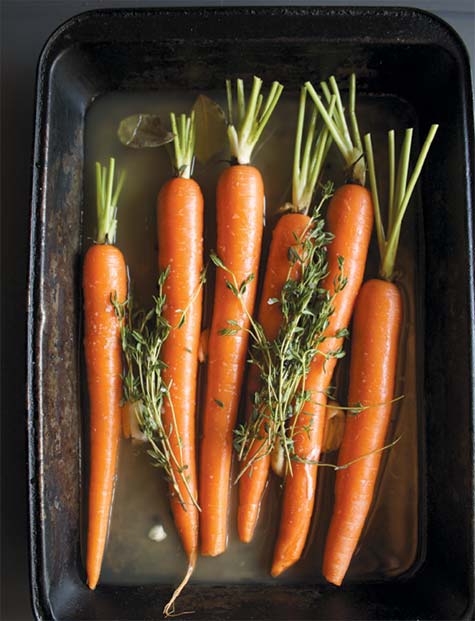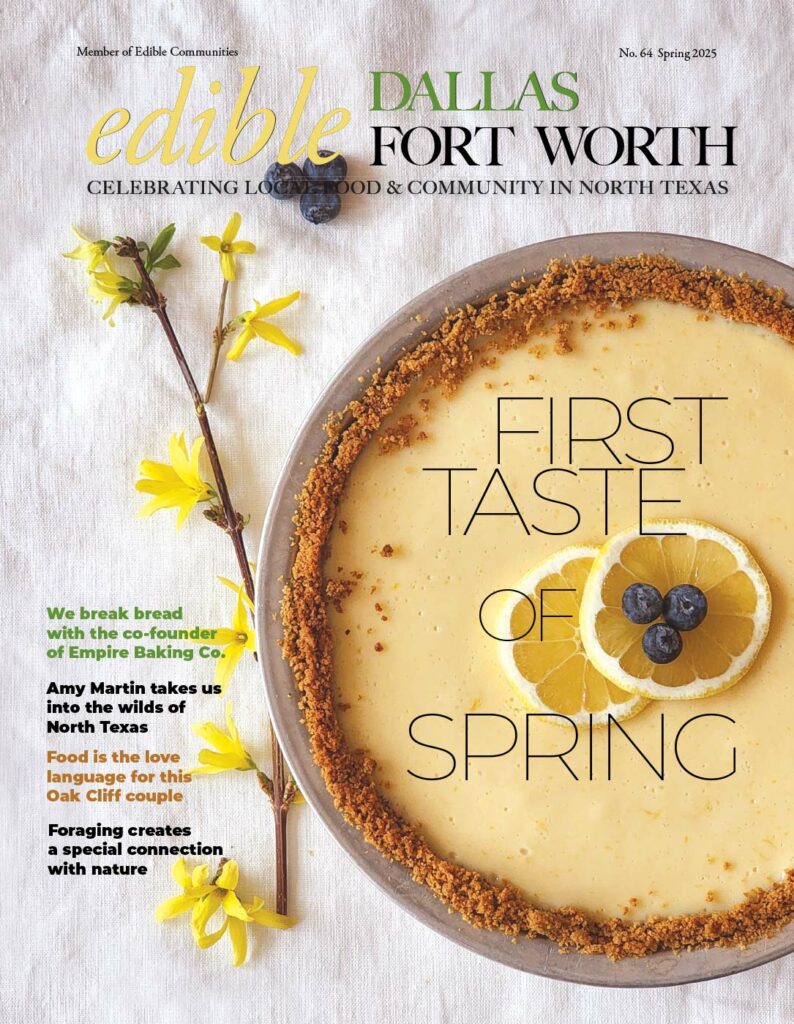
Story by Eugenia Bone • Photography by Ben Fink
For years I was trapped in the mentality that carrots’ primary role in my kitchen was as part of the tripod upon which many Italian dishes stand: carrots, onions and garlic. These aromatics are known as a battuto (which can include other ingredients as well, like celery and parsley; once cooked, the combo is called a soffritto). But then my local farmers market started selling beautiful carrots, bound by a piece of twine and topped with a head of feathery greens that cooked up impossibly tender and sweet: Hardly the working horse carrots that I used to buy in the grocery store. It didn’t take long for me to move beyond the notion that carrots were supporting players in the kitchen and realize that they can and should be the stars. And not just the root but also the glorious greens.
Carrots were cultivated as long ago as the 8th century B.C., in Babylon, but Alan Davidson, author of the Oxford Companion to Food, guesses they were cultivated not for the root but for the herby greens. (It’s a member of the parsley family.) Which is ironic, because today, most people toss the greens. Not only are carrot greens edible, they’re delicious.
When buying carrots with their greens, look for bright, moist leaves. Avoid carrots that are rubbery or wrinkly. They should be very firm and smooth (bumpy is okay). Small, immature carrots are less flavorful than mature carrots, but slender, young carrots are best.
Since, like beet greens, carrot greens pull moisture from the root, as soon as I get them in the kitchen I separate the greens from the root. The greens can be processed into Carrot Top Pesto right away, to be served with a piece of grilled meat, poultry, or fish, and the carrots stored in a plastic bag in the fridge (but away from apples, which emit a chemical that can cause off flavors in the carrots). If your carrots get soft or limp you can resuscitate them in cold water; and remove the cores of the old ones, which can be tough.
Lately, I have been braising carrots in a little homemade chicken or vegetable stock, white wine, and butter, which is divine, and making an addicting marinara sauce that is super sweet because of all the carrots in it. Indeed, carrots are excellent in desserty recipes. I make a sweet and sour carrot jam that is fantastic on a mozzarella sandwich, and often add shredded carrots to muffin batters for flavor and texture.
And that’s just getting started. I pressure can carrots to have on hand for quick soufflés, make clean tasting slaws with shredded carrots and feta cheese, cook veal stew with nubby “Paris Market” cultivars that are the same size as the hunks of meat, whip up creamy carrot soup, and of course, every once in a while, a glorious carrot cake, redolent with the spices carrots love: ginger, nutmeg, and cinnamon. Now when I go to the market, I don’t buy carrots to make dinner.
I buy carrots to be dinner.
It didn’t take long for me to move beyond
the notion that carrots were supporting
players in the kitchen and realize that they
can and should be the stars.
RECIPES
Flank Steak with Carrot Top Pesto
Edible Dallas & Fort Worth is a quarterly local foods magazine that promotes the abundance of local foods in Dallas, Fort Worth and 34 North Texas counties. We celebrate the family farmers, wine makers, food artisans, chefs and other food-related businesses for their dedication to using the highest quality, fresh, seasonal foods and ingredients.
- Edible Dallas and Fort Worthhttps://www.edibledfw.com/author/edibledfw/
- Edible Dallas and Fort Worthhttps://www.edibledfw.com/author/edibledfw/
- Edible Dallas and Fort Worthhttps://www.edibledfw.com/author/edibledfw/
- Edible Dallas and Fort Worthhttps://www.edibledfw.com/author/edibledfw/









